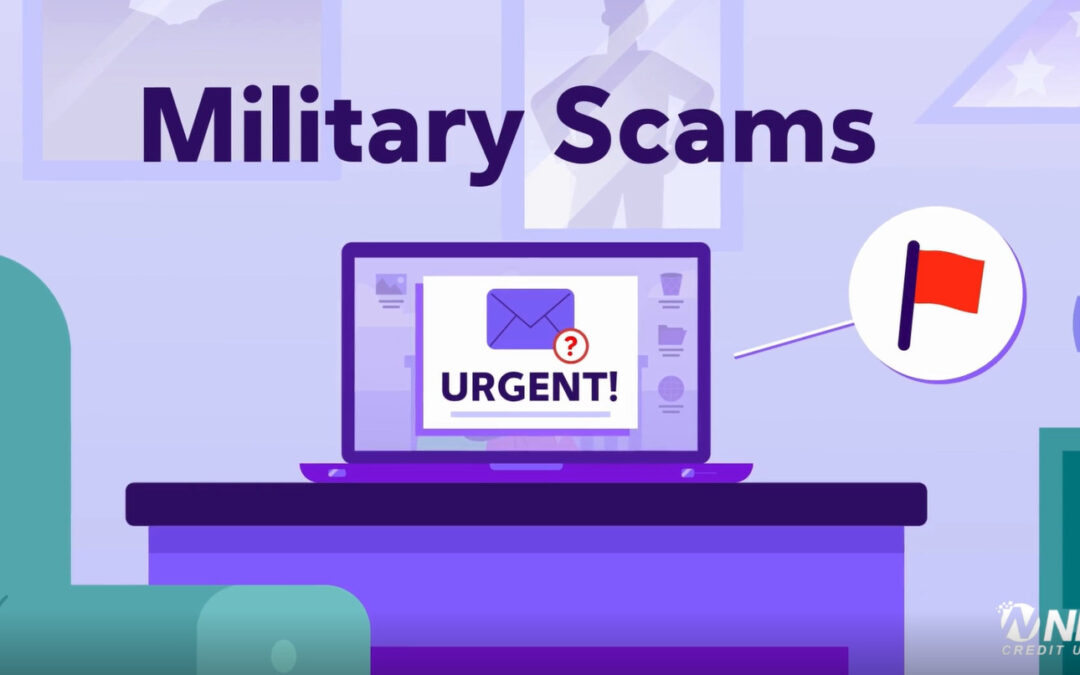Identify and Defend Against Military Scams
Being away from home on a deployment is a challenging time for military members and their families, and some people try to take advantage of these situations, making things even more stressful.
A military scam begins when a scammer gains access to deployment, relocation, or public information. Then they use this data to try to convince their targets – armed services members or their loved ones – to send money right away.
Common Scams and Tactics
A scammer may call, email, or text an urgent request for money via a wire transfer or digital payment platform. These schemes can take many forms, including:
- Fake debt collectors with urgent notices.
- Donation requests from fraudulent charity organizations that claim to help members of the military.
- Fees for grant applications from government agency imposters.
- A person pretending to be—or represent—a deployed service member in desperate need of money.
In reality, the criminal is trying to create a sense of urgency or tug on your heartstrings to get you to respond with emotion.
Ways to Avoid Scams
Any time you receive a request for money or personal information, take a moment to evaluate the situation and make sure there are no red flags. This includes doing research on any organization or company that you’re not familiar with. If something seems off, dig in and ask questions. A legitimate debt collector or charity will take the time to answer any questions.
Also consider the payment method they are asking for. Wire transfers and digital payment platforms often can’t be reversed once the payment has been sent, so if the requestor is demanding these forms of payment, it might be a red flag.
If a loved one sends a text message from a number you don’t know, and they say they need money quickly, ask them a personal question only they would be able to answer. This is an effective way to verify their identity and protect against imposters. You may also want to check in with family and friends to see if others have received similar communication.
When it comes to your finances, always slow down and ask yourself questions.
To learn about other scams, and ways to protect yourself, visit https://netcreditunion.com/no-more-fraud/.



Recent Comments